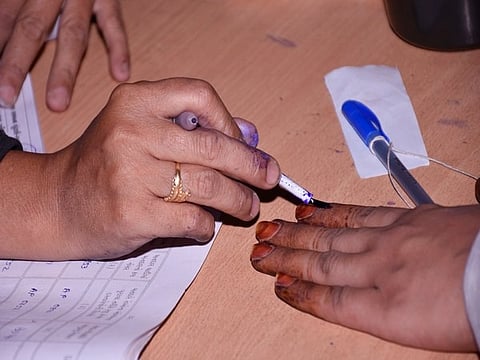

NEW DELHI: A week after Union Cabinet approved the proposal for ‘One Nation, One Election’ as recommended by a high-level committee headed by former President Ram Nath Kovind, the government is likely to bring three Bills in Parliament during the winter session or budget session.
Of this, two Bills include amending the Constitution to put in place the government’s plan to hold simultaneous elections for the Lok Sabha, state assemblies and local bodies in a phased manner.
The Kovind committee had proposed simultaneous elections to the Lok Sabha and state assemblies as the first step, and synchronised polls to local bodies within 100 days of the general election. It had recommended 15 amendments to the Constitution to be carried out through two Constitution Amendment Bills. If the government decides to carry out the Kovind committee proposal from 2029, as many as 17 states will have tenure of assemblies for less than three years.
The committee had proposed amendments to three Articles, insertion of 12 new sub-clauses in the existing Articles and tweaking three laws related to Union Territories with legislative assemblies. The total number of amendments and new insertions stands at 18.
However, experts have pointed out that to pass the Constitutional Amendment Bills, a special majority of not less than two-thirds of the House will be required. The government needs the support of 362 members, though the NDA has only 292 members in the House. As most Opposition parties and the ‘neutral’ parties such as BJD have opposed the Bill, the government has a tough task at hand.
Citing the committee’s recommendations, sources said the proposed Bill would seek to amend Article 82A by adding sub-clause (1) relating to the ‘appointed date’. It will also seek to insert sub-clause (2) to Article 82A relating to the end of terms of the Lok Sabha and state assemblies together.
The Bill also proposes to amend Article 83(2) and insert new sub-clauses (3) and (4) relating to the duration and dissolution of the Lok Sabha. It also has provisions related to the dissolution of the legislative assemblies and amending Article 327 to insert the term ‘simultaneous elections’. This Bill will not need ratification by at least 50% of the states, the recommendation said.
One of the proposed Constitutional Amendment Bills, which deals with aligning the local body elections to that of the Lok Sabha and the assemblies, will require an endorsement from at least 50% of the states.
The second Constitutional Amendment Bill will seek to amend constitutional provisions relating to the preparation of electoral rolls by the Election Commission in consultation with State Election Commissions for local body polls.
The second Bill will also create provisions to hold simultaneous elections to municipalities and panchayats, along with elections to Lok Sabha and state legislative assemblies by inserting a new Article 324A.
The third Bill will be an ordinary one to amend provisions in three laws dealing with Union Territories with legislative assemblies — Puducherry, Delhi and Jammu and Kashmir — to align the terms of these Houses with other legislative assemblies and the Lok Sabha as proposed in the first Constitutional Amendment Bill.
The statutes it proposes to amend are the Government of National Capital Territory of Delhi Act-1991, the Government of Union Territories Act-1963 and the Jammu and Kashmir Reorganisation Act-2019.
Panel proposed cuts and stitches to existing laws
The high-level committee led by former President Ram Nath Kovind had proposed amendments to three Articles, insertion of 12 new sub-clauses in the existing Articles and tweaking three laws related to Union Territories with legislative assemblies. The total number of amendments stands at 18.